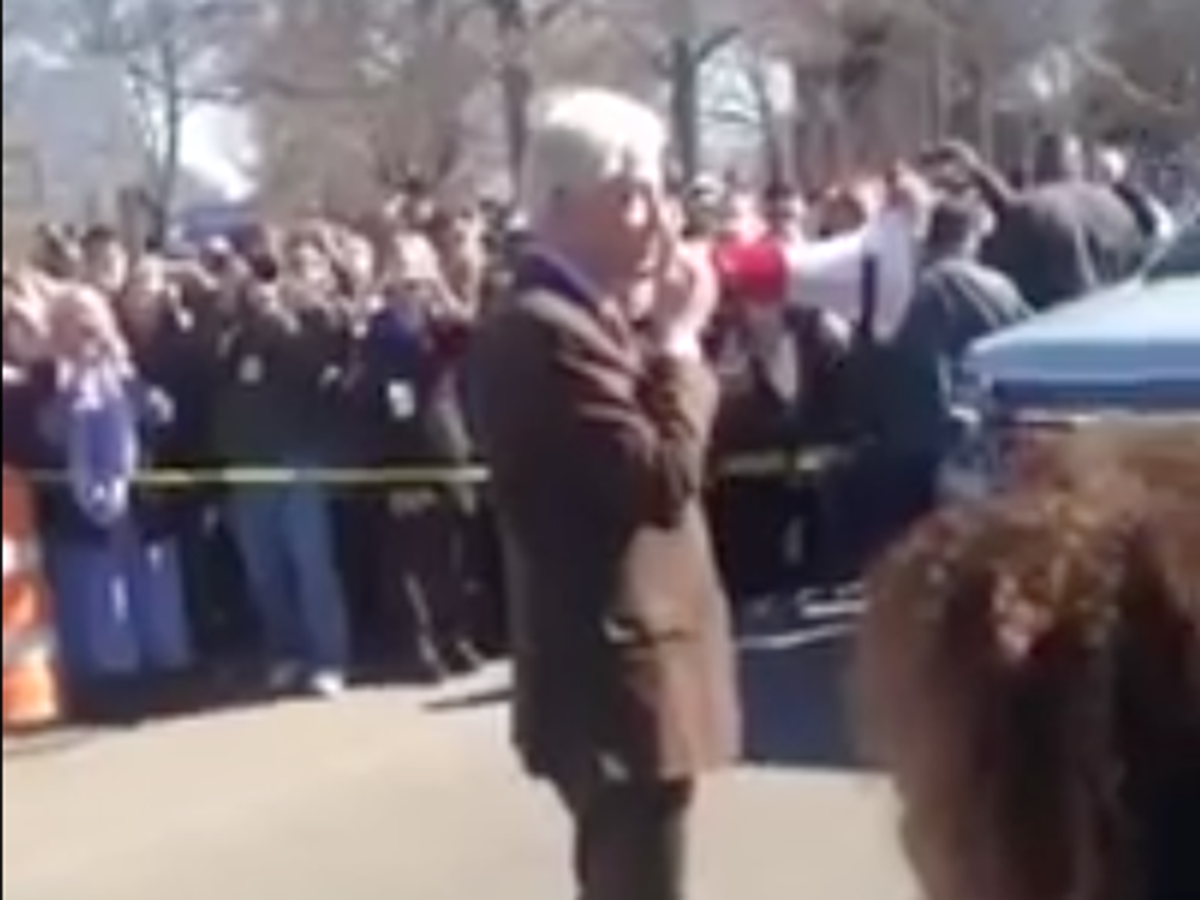Bill Clinton Appearance Outside New Bedford Polling Place Raises Questions

via YouTube
Former President Bill Clinton’s public appearances this Super Tuesday have some crying foul over potential violations of Massachusetts election law.
Hours after he went inside polling locations in Newton and West Roxbury and was photographed posing with Boston Mayor Marty Walsh and a Democratic ballot, Clinton visited a polling place in New Bedford and was filmed nearby stumping for Hillary Clinton with a megaphone-wielding Mayor Jon Mitchell.
“I haven’t seen one person be able to come in and be able to vote in here,” says one woman narrating a video of the scene, posted Tuesday afternoon. “It’s completely blocked off. No cars can park here. They are affecting the voting at this poll. It’s ridiculous. This should be fraud, and illegal.”
“I have one question for you: Is New Bedford Clinton country?” Mitchell asks the crowd in another video of the megaphone speech, also posted Tuesday afternoon. “Listen, listen, I want us to be so loud that every other Super Tuesday state can hear it. Is New Bedford Clinton country?”
Mitchell hands the megaphone to Clinton, who he introduces as the “husband of a soon-to-be great president.”
“I especially thank those of you who are supporting Hillary, but we ought to give the others a round of applause too,” Clinton said. He spoke for nearly three minutes.
Secretary of the Commonwealth Bill Galvin told the New York Times Tuesday afternoon that poll workers in New Bedford had been reminded prior to Clinton’s arrival that “even a president can’t go inside and work a polling place.”
“He can go in, but he can’t approach voters,” Galvin said. “We just took the extra precaution of telling them because this is not a usual occurrence. You don’t usually get a president doing this.”
Massachusetts election law prohibits any person from distributing “campaign material intended to influence the vote of a voter in the ongoing election” within 150 of a polling location. In addition, “no person shall solicit votes for or against, or otherwise promote or oppose, any person or political party or position on a ballot question, to be voted on at the current election,” the law reads.
Paul Feeney, Massachusetts state director for the Sen. Bernie Sanders campaign, says he received 12 calls in half an hour from voters who said the polling place was blocked by Clinton’s appearance. “Folks were calling the hotline saying they wanted to vote but couldn’t,” he says.
Brian McNiff, spokesperson for Secretary of the Commonwealth Bill Galvin, said his office had heard about traffic near polling locations in New Bedford, but maintained that the polls were “never inaccessible.”
“We don’t control city streets,” McNiff says. “Anyone who got to the polls was able to vote.”
When asked if Clinton’s megaphone speech violated election law, even if he stood further than 150 feet from the polling location, McNiff said: “Election law is silent on that.” He added that penalties for violating these regulations are rarely enforced, and “very often…people who do it are asked to stop.”


